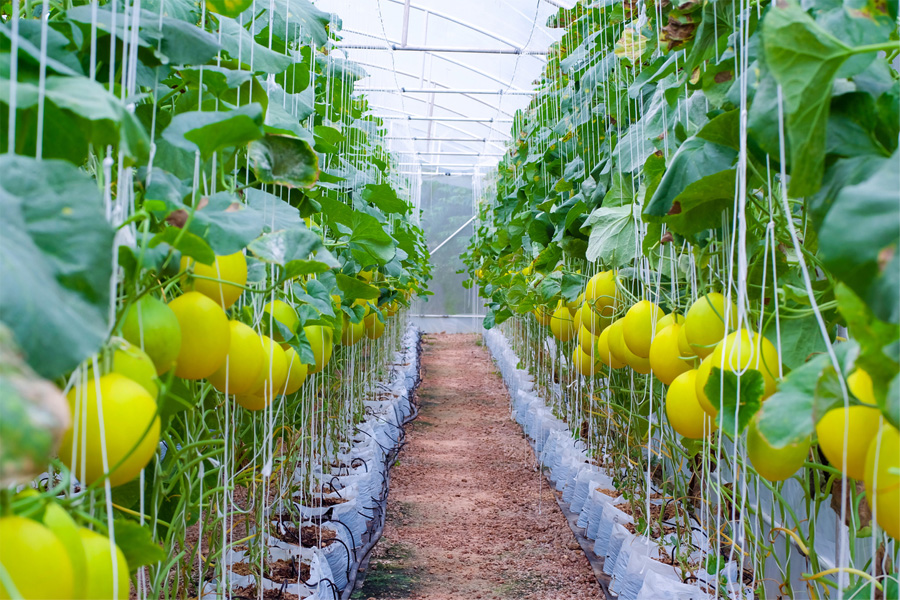Agricultural twine is a type of hanging rope used in agriculture, especially in greenhouse farming, polytunnels, and net houses. Agricultural twine is typically made from polypropylene (PP) or polyethylene (PE), which are thermoplastic materials known for their high durability, good load-bearing capacity, and resistance to decay over time. Agricultural twine is a common product widely used by farmers in cultivation practices.
Melon hanging twine is a type of agricultural twine specifically designed for supporting melon plants in a netting system. It provides structural support for melon plants to climb and grow evenly on the netting surface, optimizing light exposure and air circulation.
For more information about agricultural twine, you can refer to the article "What is Twine? Agricultural twine? Guide to Choosing Suitable twine" for details. In this article, we'll explore what Melon hanging twine is, its uses, instructions for use, and tips for choosing the right product to achieve high-efficiency cultivation while saving costs.
The melon hanging twine is a product made entirely from virgin plastic, with the main material being polypropylene (PP) resin.

Agricultural twine is utilized to support the cultivation of various vine crops such as cucumbers, gourds, tomatoes, peppers, eggplants, pumpkins, etc. Agricultural fiber aids in better plant growth, disease prevention, and enhances productivity and quality of agricultural produce.
The applications of agricultural twine - The melon hanging twine in agriculture include:
The melon hanging twine is commonly used in conjunction with steel hooks for suspending the fruiting bodies of melon, preventing them from falling or being crushed under their own weight. One end of The melon hanging twine is attached to a specialized steel hook, which is then hooked onto a cable or steel wire on the frame of the greenhouse. The other end is left near the base of the plant and equipped with a clamping device to secure it to the stem. This prevents the twine from tilting or falling due to wind, reducing the risk of entanglement for farmers during melon care.
Currently, there are numerous types of twine available on the market, sold in both stores and supermarkets. Selecting a high-quality twine product is crucial to avoid cheap, low-quality products that may break easily, degrade quickly, or have inaccurate specifications, leading to inappropriate choices for consumers. Farmers should opt for ropes produced by reputable, long-standing companies with quality certifications. Siam Brothers Vietnam is a leading manufacturer with 30 years of establishment and development in the Vietnamese market, holding various certifications such as ISO 14001, ISO 9001, environmental certifications, manufacturing capacity certifications, fabrication facility certifications, etc. Therefore, each agricultural twine product, including melon hanging fiber, meets high-quality standards. Siam Brothers Vietnam has established its own brand for the agricultural fiber product line, named Siam Eco Farm, aiming to standardize and optimize the highest manufacturing capacity for this product line. The outstanding features of Siam Eco Farm include:
Please contact Siam Brothers Vietnam for free product consultation through the following contact channels: